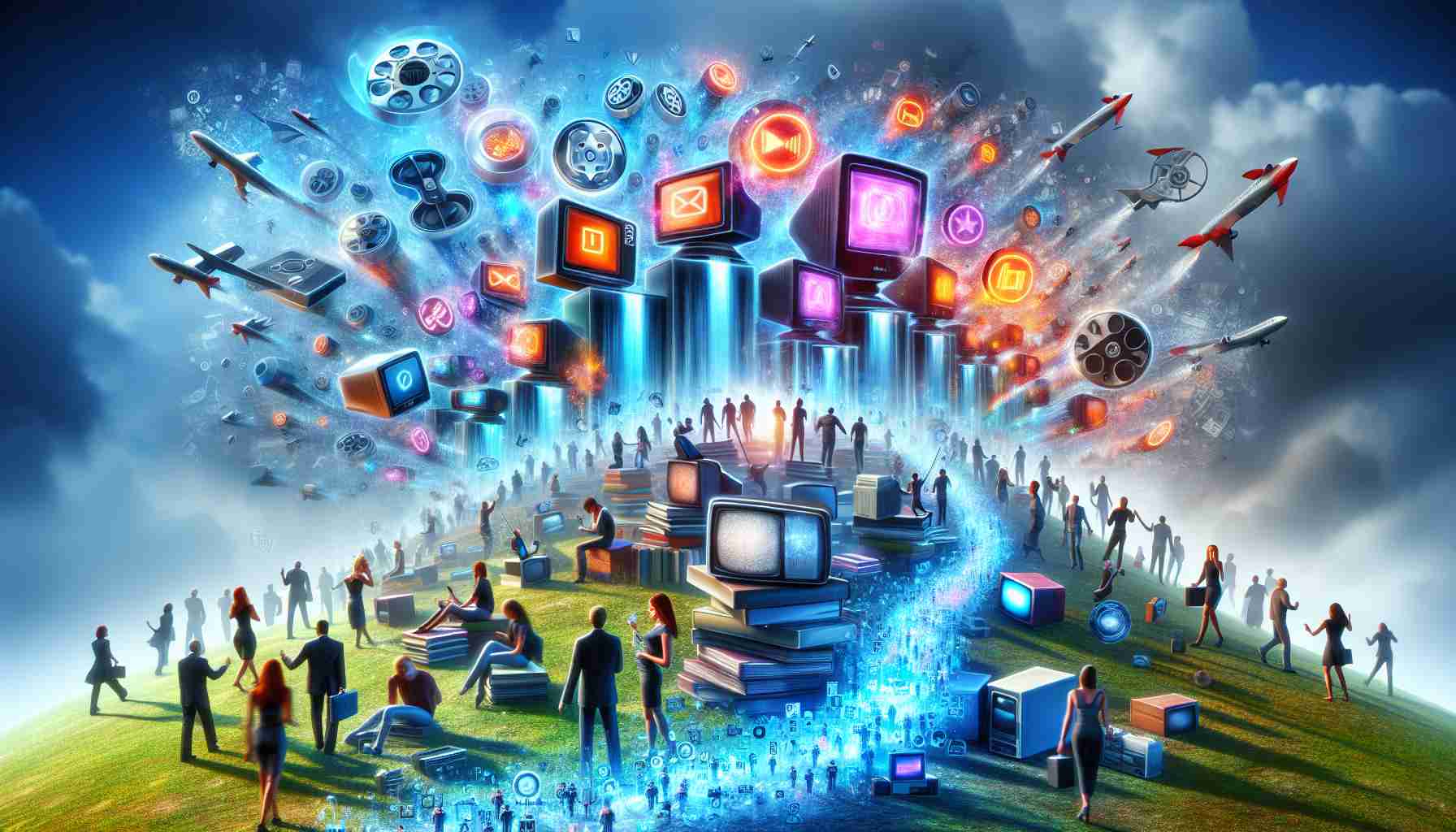The entertainment industry has witnessed a remarkable transformation with the rise of digital streaming platforms. Streaming services like Netflix, Hulu, and Amazon Prime have revolutionized the way people consume content, significantly impacting traditional media channels such as television and cinema.
The availability and convenience of streaming platforms have changed the landscape of entertainment forever. No longer do viewers have to rely on scheduled programming or visit a movie theater to enjoy their favorite shows and movies. With just a few clicks, they can access a vast library of content on demand, anytime and anywhere.
Moreover, these platforms have not only made content more accessible but have also given a platform for emerging artists and filmmakers. Independent productions that may have struggled to gain exposure in conventional media channels now have the opportunity to reach a global audience through streaming platforms. This has led to a surge in diverse, unique, and unconventional content, offering viewers an array of choices beyond mainstream offerings.
Furthermore, streaming platforms have redefined the concept of “binge-watching.” The ability to stream entire seasons of a show in one sitting has become a widespread practice. Viewers can immerse themselves in a narrative, allowing for deep character development and intricate storylines. This binge-watching culture has not only reshaped the way content is consumed but has also influenced how stories are crafted, encouraging creators to build narratives with long-term engagement in mind.
The impact of streaming platforms on the entertainment industry cannot be overlooked. Traditional media channels have had to adapt to stay relevant in an ever-evolving landscape. The rise of platforms like Disney+, HBO Max, and Apple TV+ further highlights the significance of the streaming revolution.
In conclusion, the emergence of digital streaming platforms has transformed the entertainment industry by providing accessibility, empowering artists, promoting diverse content, and shaping new viewing habits. As technology continues to advance, the future of entertainment undoubtedly lies in the hands of streaming platforms, shaping how we enjoy and engage with content for years to come.
The entertainment industry is a vast and constantly evolving sector that encompasses various forms of media and content. With the rise of digital streaming platforms, such as Netflix, Hulu, and Amazon Prime, the industry has experienced a significant transformation. These platforms have revolutionized the way people consume content, affecting traditional media channels like television and cinema.
The market for streaming services has seen immense growth in recent years. According to market forecasts, the global video streaming market is expected to reach a value of $184.3 billion by 2027, with a compound annual growth rate (CAGR) of 20.4% during the forecast period. This growth can be attributed to factors such as increasing internet penetration, affordability of streaming services, and the proliferation of smartphones and other connected devices.
One of the key issues related to the streaming industry is the competition among different platforms. As more players enter the market, there is a need for differentiation and exclusive content to attract and retain subscribers. Streaming platforms are investing heavily in original programming and securing exclusive rights to popular shows and movies to stay ahead in the competitive landscape. This has led to high-profile bidding wars for content and increased production budgets.
Another challenge faced by the industry is piracy and illegal streaming. Despite attempts to combat piracy, unauthorized streaming platforms still exist, causing revenue losses for legitimate streaming services. Industry players are constantly implementing measures to protect their content and ensure that consumers choose legal streaming options.
While streaming platforms have democratized access to content and provided opportunities for emerging artists, there are concerns regarding fair compensation. The payment structure for artists and creators in the streaming industry has been a topic of debate. Many argue that the revenue share and royalties provided by streaming platforms are insufficient, particularly for independent artists and musicians. This has sparked discussions about the need for more equitable compensation models and royalty distribution in the digital age.
It is also worth noting that the streaming revolution has had profound effects on traditional media channels such as television and cinema. Broadcast networks and cable providers have had to adapt their business models to account for the changing landscape. Many traditional media companies have launched their own streaming platforms, such as Disney+ and HBO Max, to compete in the digital space and retain their audiences.
Overall, the emergence of digital streaming platforms has transformed the entertainment industry in multiple ways. It has provided viewers with greater accessibility to content, empowered artists and filmmakers by offering a global platform, promoted diverse and unconventional content, and influenced new viewing habits. As technology continues to advance, the future of entertainment undoubtedly lies in the hands of streaming platforms, shaping how we enjoy and engage with content for years to come.
For more information on the streaming industry, you can visit the following links:
Statista – Global video streaming market forecast
Streaming Media – The Future of OTT Video
Digital Music News – The Shrinking Margins of Music Streaming
eMarketer – Disney’s International Expansion Plans
The source of the article is from the blog kunsthuisoaleer.nl
